子育てをしていると、「子どもに何を与えれば一番幸せになれるのだろう?」と考えることがあるかもしれません。おもちゃや洋服、学習教材、習い事など、親は子どもの未来を思っていろいろなものを用意したくなります。でも実は、子どもにとって世界で一番のプレゼントは「親からの信用・信頼」だと言われています。
「うちの子はまだ小さいから信用するなんて無理」「何か失敗されたら困る」などと思う方もいるかもしれません。しかし、親から信頼されていると感じている子どもは、予想以上の成長を見せるものです。本記事では、「親が子どもを信用・信頼することの大切さ」について、具体的に掘り下げてみたいと思います。
1. 親からの「信用・信頼」とは?
- 信用と信頼の違い
一般的に「信用」は「この人なら大丈夫だ」と相手の能力や行動を前提に置いた評価的な要素を含む言葉で、「信頼」は相手の存在や人格そのものを肯定し、心から頼りにする気持ちを指すと解釈できます。子育ての場面では、どちらも大切です。「子どもならきっとやれるはず」という期待感や、「この子が選んだ道を尊重したい」という姿勢、その両方が子どもに安心感を与えます。 - 存在を受け入れる安心感
子どもにとって親の信頼とは、「そのままの自分でいていい」と思わせてくれる力があります。学業や習い事で結果が出なくても、失敗しても、「それでもあなたを信じているよ」というメッセージが伝わると、子どもは自己肯定感を高め、自分の可能性を伸ばそうと頑張るのです。
2. 「ほめる」と「信頼する」の違い
- 結果への評価 vs. 人格そのものへの肯定
子どもをほめることも大切ですが、それが「テストでいい点を取ったからすごいね」という結果評価に偏りすぎると、子どもは「結果が出せなかったら自分は愛されないのかもしれない」と不安になりがちです。一方、「たとえ結果が出なくてもあなたを信じているよ」という態度を示されると、子どもは失敗を恐れずにチャレンジできるようになります。 - ほめ言葉だけでは届かない安心感
「すごいね!」「えらいね!」という言葉だけではカバーできない領域があります。親が子どもを信頼するということは、子どもの行動を客観的に見守りながら、存在そのものを肯定すること。そこにこそ、子どもが「自分は大切にされている」と感じる深い喜びがあるのです。
3. 信用・信頼が子どもを伸ばす理由
- 自己効力感の向上
子どもにとって「自分はやればできる」という自己効力感は非常に重要です。親の信頼は「きっとできるよ」「試してみようか」という言葉だけでなく、態度や視線からも伝わります。そうした積み重ねが子どもの意欲やチャレンジ精神を高めます。 - 失敗を恐れなくなる
信頼されていると感じる子どもは、失敗してもやり直せるという安心感を持ちます。これが失敗を糧にして成長する力となり、結果として大きな成功やスキルアップに結びつきやすくなるのです。 - 自己肯定感とコミュニケーション能力の向上
親から信頼されている子どもは「自分には価値がある」と自然に思えます。自己肯定感が高まると、人に対してもオープンになり、コミュニケーション能力の発達にも良い影響を与えます。
4. 具体的にどうやって「信用・信頼」を示す?
- 小さな選択肢を与える
例えば、「今日の服はどれを着たい?」「このおやつの中からどれを食べたい?」など、簡単なところから子どもに選択肢を渡すことで、「自分の判断を尊重してもらえるんだ」という意識が芽生えます。これは、信頼の第一歩といえるでしょう。 - 行動を見守る時間を作る
子どもが何か新しいことにチャレンジしているとき、口出しや手出しをぐっと我慢して、まずは見守ってみましょう。親が過干渉になりすぎると、子どもは「自分で考えなくても、どうせ親がやってくれる」と学習してしまいます。 - 失敗や挫折を“ダメ”と決めつけない
失敗は成長のチャンスです。「やっぱり無理だと思ったよ」ではなく、「どうしたらうまくいくと思う?」と問いかけ、子ども自身が解決策を考える機会を与えましょう。
5. 信頼が育まれるコミュニケーション
- 「聴く」姿勢を大事にする
子どもが話しかけてきたら、スマホやテレビを中断して、目を見てしっかり話を聴く。これだけで「あなたの話は大切だよ」「信頼しているからこそ、ちゃんと耳を傾けるよ」というメッセージが伝わります。 - 子どもの感情を尊重する言葉掛け
「そんなの大したことじゃない」「泣いてるんじゃない!」と感情を否定するのではなく、「どうしてそう思ったの?」「今、どんな気持ち?」といった形で心情に寄り添ってみましょう。子どもは自分の感情を受け入れられたと感じると、親への信頼感をさらに強めます。
6. 「責任」を持たせる大切さ
- 家庭の中での役割を与える
小さい頃から「お皿を運ぶ」「洗濯物をたたむ」など、家事の一部を担当させると、自分も家族の一員として信頼されていると感じられます。「あなたはまだできないでしょ」と排除するのではなく、子どもができそうな範囲で役割を与えましょう。 - 判断する機会を増やす
何かトラブルが起きたときに、すぐに親が解決するのではなく、「あなたはどう思う?」「どうしたい?」と意見を求め、子ども自身に考えさせる時間をつくることで、責任感と自主性が育ちます。
7. 失敗を受け止める親の姿勢
- 失敗は“人格否定”ではなく“行動の結果”
子どもが失敗したとき、「なんであなたはいつもダメなの!」と人格を否定する言い方をすると、せっかくの学びのチャンスを失ってしまいます。失敗はあくまで「行動の結果」であり、「次はどうするか」を考えればいいだけのことです。 - 再チャレンジを応援する
信頼されていると感じる子どもは、「次はこうやってみよう」と前向きな気持ちになりやすいもの。親が「次、やってみなよ。応援してるよ」と励ませば、子どもは失敗を恐れずに何度でも挑戦できるでしょう。
8. 親自身が成長を楽しむ姿を見せる
- 親が何か新しいことに挑戦する姿
子どもは親の口癖や行動様式をよく観察しています。親が「自分もこれに挑戦してみようかな」「ちょっと難しいけど楽しそう」と前向きな態度を見せると、それだけで「やってみる価値がある」と子どもも感じます。 - 「これまでできなかったことができるようになる」喜びを共有
新しいスキルを習得したり、長年の苦手を克服したときなど、親が素直に喜ぶ姿を子どもと共有することで、「大人になっても学び続けることは楽しいんだ」というメッセージが伝わります。
まとめ
子どもにとって、親からの信用・信頼は何物にも代えがたい「最高のプレゼント」です。高価なおもちゃや豪華なレジャーも、それ自体は一時的な喜びに過ぎません。それよりも、「自分は親に信じてもらえているんだ」という安心感は、長期的に子どもの成長や人生観に大きな影響を与えます。
- 親が子どもを信用し、信頼する姿勢を見せる。
- 失敗や不安定な面も含めて受け止める。
- 責任を与えたり、選択肢を託したりすることで自主性を育む。
これらを心がけるだけで、子どもの中に「自分は認められている」という確かな自信と、自分の力を伸ばそうとする前向きな意欲が芽生えるはずです。子どものためを思う親の気持ちは、こうした形でこそ最も効果的に伝わります。ぜひ、日常のなかで「子どもを心から信頼する」アクションを重ねてみてください。きっと、子どもの成長は想像を超えるほど頼もしく、そして喜ばしいものになるでしょう。
“Trust” is the greatest gift a parent can give to a child
When raising children, you may wonder what would make them happiest. Parents often want to provide various things—toys, clothes, educational materials, extracurricular activities—hoping to shape a bright future for their child. However, it’s been said that the greatest gift a child can receive is “trust and confidence from their parents.”
Some might think, “My child is too young to be trusted,” or “What if they fail?” But children who sense that their parents trust them tend to grow in remarkable ways. In this post, we will explore why it’s so important for parents to trust their children and how this trust can significantly impact a child’s development.
1. What Does “Trust and Confidence” from Parents Mean?
- The Difference Between “Confidence” and “Trust”
Generally, “confidence” implies evaluating someone’s capabilities and believing “they can handle it,” while “trust” suggests a deeper reliance on who they are at their core. In childrearing, both are essential. Believing “my child can do it” and “I respect the path they choose” fosters a sense of security. - The Assurance of Being Accepted
For children, parental trust means feeling “I can be myself without worry.” Even if they fail at schoolwork or sports, hearing “I still believe in you” boosts their self-esteem and drives them to explore their potential.
2. The Difference Between “Praising” and “Trusting”
- Praising Results vs. Affirming the Child’s Personhood
While praising a child is important, if it only focuses on outcomes—like “You’re great because you got a high score on a test”—the child may worry they won’t be loved if they fail. In contrast, “I trust you no matter what the result” encourages them to attempt things without fear of failure. - Security That Goes Beyond Compliments
Simple words like “Good job!” or “Well done!” can’t cover everything. Trust means objectively observing your child’s actions and affirming their existence. This deep level of acknowledgment helps children truly feel valued.
3. How Trust Helps Children Thrive
- Boosting Self-Efficacy
A child’s belief that “I can do it if I try” is crucial. This sense of self-efficacy is reinforced not just by verbal expressions like “You can do it,” but also through the parent’s supportive tone and body language. - Reducing Fear of Failure
Children who feel trusted are less afraid of failing because they know they can try again. This resilience often leads to significant achievements and skill development over time. - Enhanced Self-Esteem and Communication Skills
Children who know they’re trusted naturally develop a sense of self-worth. This heightened self-esteem helps them be more open with others, improving their communication abilities.
4. Practical Ways to Show Trust
- Offer Small Choices
Start with simple options, like “Which outfit do you want to wear today?” or “Which snack would you like?” By allowing them to decide, you show that you respect their judgment, laying the foundation for trust. - Give Them Space to Act
When children try something new, resist the urge to intervene immediately. Too much parental involvement can teach them “I don’t need to think for myself because my parents will do it for me anyway.” - Don’t Label Failures as ‘Bad’
Mistakes are opportunities to grow. Instead of saying “I knew it wouldn’t work,” ask them “How do you think it could work next time?” Give them the chance to find solutions on their own.
5. Building Trust Through Communication
- Prioritize Listening
If your child starts talking to you, pause what you’re doing—put down your phone or turn off the TV—and give them your full attention. This conveys “Your thoughts matter,” reinforcing the message of trust. - Respect Their Emotions
Rather than dismissing their feelings with comments like “That’s not a big deal” or “Stop crying,” ask “Why do you feel that way?” or “What’s on your mind?” Acknowledging their emotions can deepen their trust in you.
6. The Importance of Assigning Responsibility
- Give Them Roles at Home
Even simple tasks, like carrying dishes or folding laundry, allow children to feel they contribute to the household. Instead of saying, “You’re too young for that,” find something suitable for their ability level. - Encourage Them to Make Decisions
When a problem arises, don’t solve it for them immediately. Ask, “What do you think?” or “What’s your plan?” Engaging their opinions nurtures both responsibility and independence.
7. Handling Mistakes with the Right Attitude
- Focus on Behavior, Not Character
If a child fails, avoid criticizing their character with comments like “Why are you always messing up!” Failure is merely a result of their action, and the conversation should center on “What can we do next time?” - Cheer for Another Try
Children who feel trusted think, “I can try again.” If you show support—“Give it another shot, I’m rooting for you!”—they’re more likely to persist and learn from their failures.
8. Show That You, as a Parent, Also Enjoy Growth
- Let Them See You Trying New Things
Children observe parental habits closely. If a parent says, “I want to give this a try—it seems exciting,” it sends the message that exploring new challenges is worthwhile. - Celebrate Overcoming Personal Hurdles
When you learn a new skill or conquer a long-standing struggle, share your joy with your child. This shows them that even adults continue to learn and grow.
Conclusion
For children, parental trust is an irreplaceable “greatest gift.” While toys or fancy experiences can provide temporary happiness, the long-lasting impact of knowing “My parents truly believe in me” shapes a child’s growth and worldview more profoundly.
- Demonstrate your trust by supporting and believing in your child.
- Accept not only their successes but also their failures and uncertainties.
- Foster independence by assigning responsibilities and offering choices.
Such actions show children they’re genuinely respected and loved, boosting their confidence and motivation to grow. When parents take steps to truly trust their children, the results can exceed all expectations, leading to a joyful and rewarding journey for both parent and child.




コメント